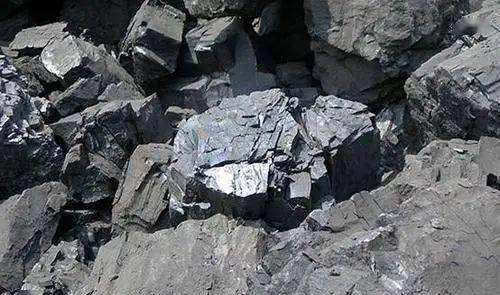On April 18, local time, Australian mining company Syrah Resources announced that it had received a $107 million loan from the U.S. Department of Energy to expand its battery components plant in Louisiana, USA.
Syrah Resources estimates that by 2040, the plant could supply graphite anode material (AAM) for 2.5 million electric vehicles. Shaun Verner, ceo of the company, said: "This loan will enable Syrah to accelerate the growth strategy of its downstream business and support the fast-growing electric vehicle and battery supply chain in the United States. ”
Documents submitted to the Australian Securities Exchange by Syrah Resources show that the loan is conditional and needs to wait for final documents, which is expected to be completed by June this year. Loan funds are expected to be in place by September this year.
Shaun Verner, the company's general manager, said that after receiving the loan, the company will have more flexibility in expanding its graphite processing plant in Louisiana, USA. The $176 million expansion will more than double in size upon completion.
Driven by the news, the company's shares listed on the Australian Securities Exchange rose more than 15% at one point.

Graphite ore
Headquartered in Melbourne, Australia, Syrah Resorts is a mining company specializing in the mining and production of graphite products, owning the Balama Graphite Mine in Mozambique and the Vidalia Graphite Active Anode Materials Plant in Louisiana, USA. The Balama Graphite Mine in southern Africa is one of the largest graphite mines in the world.
In December 2021, Syrah Resources signed a four-year supply agreement with Tesla to produce the graphite reactive anode material tesla needs at its Vidalia plant in Louisiana. Under the agreement, Tesla plans to buy 80 percent of the plant's production, or 8,000 tons of graphite per year, starting in 2025.
According to the agreement, Syrah Resources plans to invest $137.5 million to expand the Vidalia plant, increasing its production scale from the start-up stage to the commercial level. The company said that if the Vidalia plant is further expanded, Tesla will have the option to acquire more graphite active anode materials in the future.
According to industry estimates cited by Syrah Resources, Vidalia's initial 10,000 tons of annual production will grow to enough to supply 3% of U.S. battery demand by 2025. Shaun Verner, the company's general manager, has said the company's long-term plan is to expand Vidalia's production to more than 40,000 tons per year around 2025.
Graphite is one of the main raw materials for lithium-ion batteries, the core components of electric vehicles. It is understood that each hybrid vehicle needs an average of about 10 kilograms of graphite, and each pure electric vehicle needs an average of about 100 kilograms of graphite.
China is the world's largest graphite producer, with Graphite production in China reaching 650,000 tons in 2020, accounting for about 60% of the world's total graphite production. In 2020, China has proven graphite reserves of 73 million tons, accounting for 23% of the world's reserves, ranking second in the world. In addition, China's supply of battery-grade graphite accounts for about 85% of the global total.
In early December 2021, Tesla asked the U.S. government to exempt the import of graphite from China. Tesla said at the time that no U.S. company could produce graphite that met the specifications and capacity required for its batteries.
Currently, Syrah Resources' Vidalia facility in Louisiana will be the first source of graphite anode material in the United States.
Bloomberg Energy Finance report shows that the concentration of raw materials makes automakers in the United States and Europe looking to establish domestic battery supply chains feel at risk. Simon Morse, an employee of Benchmark Mineral Intelligence, a provider of battery materials data and intelligence, said the deal with Syrah Resources is part of Tesla's plan to increase its own battery production capacity to reduce its dependence on Chinese graphite.
According to industry analysis, Syrah Resources is expected to become a commercial vertically integrated producer of natural graphite AAM outside of China, and mainly targets the two major markets of the United States and Europe.
Due to the rapid growth of the new energy automobile industry and the continuous expansion of demand for power batteries, the world's major battery manufacturers and new energy vehicle companies are laying out battery raw materials such as lithium, cobalt, nickel and graphite on a global scale.
In March, Musk said at the groundbreaking ceremony of Tesla's Berlin factory that although it is called a lithium-ion battery, lithium accounts for only about 2% of the composition of the battery. Technically, it should be called a "nickel-graphite" battery, because the important component in the entire battery is nickel.
On Tesla's latest quarterly conference call, Musk also expressed a large demand for nickel. "Ask all miners to mine more nickel in an environmentally beneficial way and keep it in supply, then Tesla will supply a sizable long-term order."